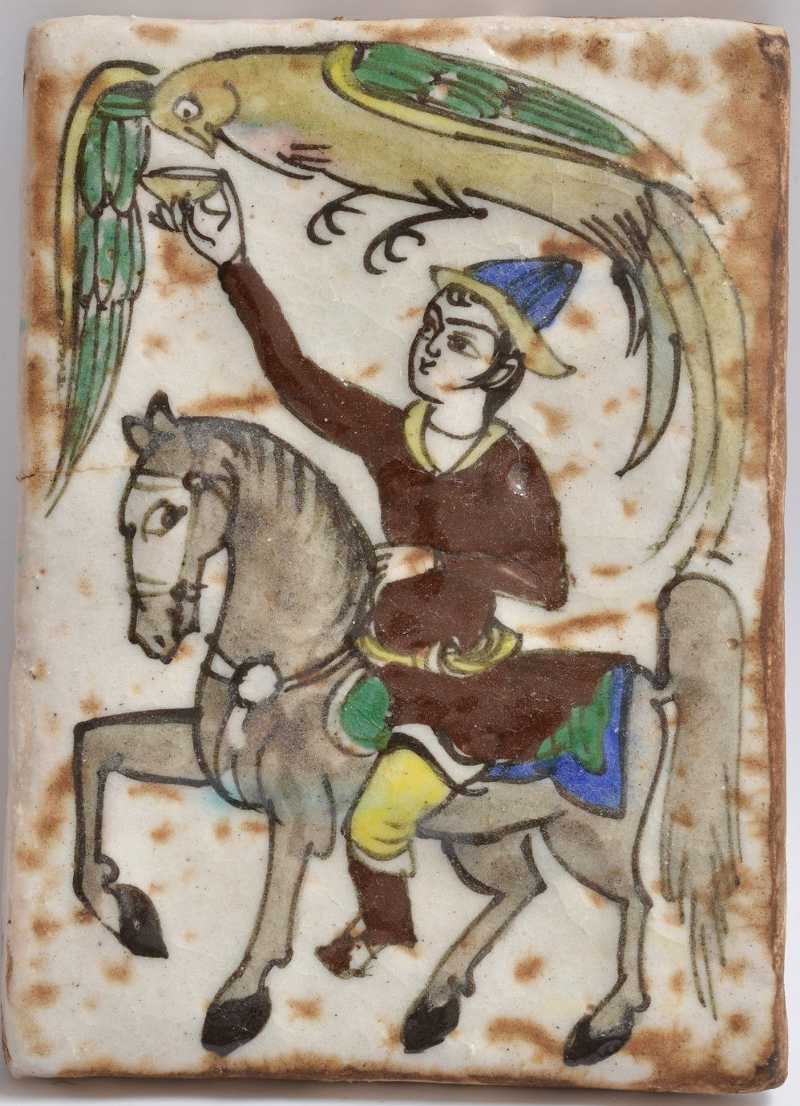FWP:
If the wing of the Huma passes over your head, and its shadow falls on you, you are destined to become a king. This famous motif from Persian story tradition forms an elegant basis for the verse's wordplay. Even when the wave of wine passes over your head, it still has the magic potency of the Huma's wing. (By contrast, if a Pari's shadow falls on you, you will go mad; on this see {56,7x}.)
As Bekhud Mohani points out, the possibility of death by drowning is very clearly evoked. If the wave of wine 'passes over your head', you are (metaphorically) deeply intoxicated, or (literally) drowning, as the word 'drowned, submerged' [ġharqah] in the first line confirms (see the definition above). To drown in wine is better, it seems, then to live in abstemiousness. The drowned drinker will become a king-- but in what sense, and in what realm?
Moreover, he might not quite drown: sar
se guzarnā can mean to pass through or pass beyond the head. The wave
might wash over him and then move on-- leaving him, so to speak, high and
dry, though never regretful. As so often, the verse allows (and requires) us to decide all
these nuances for ourselves.

Nazm:
It's well known that anyone over whose head the shadow of the Huma passes is fortunate and of lofty destiny. And for the wave of wine to pass over the head means for intoxication to ascend into the mind. And to be as if drowned in wine means to be drowned in intoxication. A second aspect also emerges-- that we would pass out of our heads, that is be rendered totally helpless; even then, the wave of wine is not less than the Huma's wing. (44-45)
== Nazm page 44; Nazm page 45